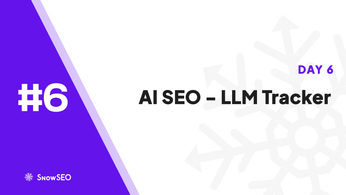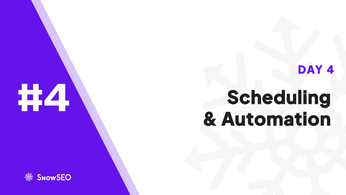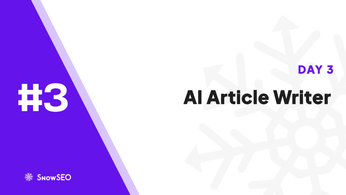
Expert Strategies to Scale SEO Measures
Table of Contents
Unlock the full potential of your SEO strategy with expert scaling techniques! Many SEO strategies plateau due to lack of scalability, missing out on expansive growth opportunities. This guide will provide advanced tactics and integration methods to enhance your SEO efforts. Authored by industry experts with a track record of scaling digital strategies.
Understanding the Importance of Scaling SEO
In today’s digital landscape, Search Engine Optimization (SEO) is a cornerstone of online visibility and business success. As markets evolve and competition intensifies, merely implementing basic SEO strategies is no longer sufficient. Scaling SEO—expanding and enhancing SEO efforts systematically—is essential for sustained growth and maintaining a competitive edge.
Why SEO Scaling Matters
Scaling SEO involves amplifying existing strategies to reach broader audiences, improve search engine rankings, and drive more organic traffic. This process is vital for several reasons:
- Enhanced Visibility: As businesses grow, their target markets often expand. Scaling SEO ensures that content reaches new demographics and geographies, increasing brand awareness.
- Adaptation to Algorithm Changes: Search engines continually update their algorithms. A scalable SEO strategy allows businesses to adapt swiftly, maintaining or improving their rankings.
- Improved User Experience: Scaling often involves optimizing website structure and content, leading to faster load times, mobile responsiveness, and overall better user engagement.
- Increased Revenue: Higher visibility and better user experience translate to more traffic and conversions, directly impacting the bottom line.
A study by the Brookings Institution highlights the importance of scaling innovations to achieve systemic change. While the study focuses on education, the principles apply broadly, emphasizing that without scaling, even the most effective innovations may fail to create lasting impact. (brookings.edu)
Measuring Success in SEO Scaling
To gauge the effectiveness of scaled SEO efforts, businesses should monitor key performance indicators (KPIs):
- Organic Traffic: An increase in visitors from search engines indicates successful scaling.
- Keyword Rankings: Improved positions for targeted keywords reflect enhanced visibility.
- Conversion Rates: Higher percentages of visitors taking desired actions (e.g., purchases, sign-ups) demonstrate effective engagement.
- Bounce Rates: Lower rates suggest that content is relevant and engaging to the audience.
- Backlink Quality and Quantity: An uptick in reputable sites linking back signifies authority and trustworthiness.
It’s crucial to note that scaling should be strategic and data-driven. An umbrella review published in the Milbank Quarterly emphasizes the need for systematic approaches in scaling to ensure effectiveness and sustainability. (pubmed.ncbi.nlm.nih.gov)

In conclusion, scaling SEO is not merely an option but a necessity in the digital age. By systematically expanding and refining SEO strategies, businesses can achieve sustained growth, adapt to changing environments, and secure a competitive advantage.
Advanced Tactics for Scaling SEO Measures
Scaling your SEO efforts requires a strategic approach that integrates advanced techniques to enhance your website’s visibility and performance. By focusing on technical SEO enhancements and leveraging automation, you can effectively manage and expand your SEO initiatives.
Technical SEO Enhancements
Technical SEO forms the backbone of your website’s ability to rank well in search engines. Implementing advanced technical strategies ensures that your site is not only accessible but also optimized for both users and search engine crawlers.
1. Structured Data Implementation
Incorporating structured data, or schema markup, helps search engines understand the content of your pages more effectively. This can lead to enhanced search results, such as rich snippets, which improve click-through rates. For instance, adding schema markup for products, reviews, or events can make your listings more informative and appealing.
2. Mobile-First Optimization
With the majority of web traffic coming from mobile devices, ensuring your website is mobile-friendly is crucial. This involves responsive design, fast loading times, and intuitive navigation tailored for smaller screens. Google’s mobile-first indexing means that the mobile version of your site is considered the primary version, making mobile optimization essential for SEO success.
3. Site Speed and Core Web Vitals
Page speed is a significant ranking factor. Optimizing your site’s loading times by compressing images, leveraging browser caching, and minimizing JavaScript can enhance user experience and search rankings. Additionally, focusing on Core Web Vitals—metrics that assess loading performance, interactivity, and visual stability—can provide a competitive edge.
4. Secure and Accessible Website
Ensuring your website uses HTTPS encryption not only secures user data but also serves as a ranking signal for search engines. Moreover, creating an XML sitemap and a robots.txt file helps search engines crawl and index your site efficiently.
Leveraging Automation in SEO
Automation can significantly enhance the efficiency and scalability of your SEO efforts. By utilizing advanced tools and technologies, you can streamline various aspects of your SEO strategy.
1. Automated Keyword Research
Tools like Moz Pro, SEMrush, and Ahrefs offer automated keyword research capabilities, providing insights into search volume, competition, and related keywords. This allows for the identification of high-impact keywords without manual analysis.
2. Content Optimization Software
Utilizing content optimization platforms can help ensure your content aligns with SEO best practices. These tools analyze your content for keyword usage, readability, and relevance, offering suggestions for improvement.
3. SEO Auditing Tools
Regular SEO audits are essential for identifying and addressing issues that may hinder your site’s performance. Automated auditing tools can scan your website for broken links, duplicate content, and other technical issues, providing actionable recommendations.
4. Performance Monitoring and Reporting
Automated reporting tools can track your SEO performance metrics, such as rankings, traffic, and conversions. This enables continuous monitoring and quick adjustments to your strategy as needed.
By integrating these advanced technical enhancements and automation strategies, you can effectively scale your SEO efforts, leading to improved search engine rankings and increased organic traffic.
Integrating Search Engine Optimization (SEO) into broader digital strategies is essential for enhancing online brand positioning. A study published in F1000Research highlights that effective SEO strategies, including niche differentiation, valuable content creation, targeted keyword usage, and scalable link building, are pivotal in strengthening a brand’s online presence. (pmc.ncbi.nlm.nih.gov)
Aligning SEO with content marketing amplifies this effect. By producing high-quality, relevant content that resonates with target audiences, businesses can improve search engine rankings and foster deeper customer engagement. This synergy not only drives organic traffic but also builds brand authority and trust.
Moreover, integrating SEO with other digital marketing channels, such as social media and email campaigns, creates a cohesive strategy that maximizes reach and effectiveness. For instance, sharing optimized content across social platforms can increase visibility and drive traffic back to the website, while email campaigns can promote content that aligns with SEO goals, enhancing overall marketing performance.
Incorporating SEO into a comprehensive digital strategy requires a holistic approach, ensuring that all marketing efforts are aligned and mutually reinforcing. This integration not only improves search engine rankings but also enhances user experience, leading to higher engagement and conversion rates.

Ready to scale your SEO with expert strategies? Adopt these approaches and let SnowSEO automate your keyword research, content, and performance tracking—visit snowseo.com to accelerate your growth today.
Frequently Asked Questions
Q1: What are the key benefits of scaling SEO strategies?
Scaling SEO strategies leads to greater organic traffic, improved brand visibility, and higher conversion rates. By leveraging advanced tools and processes, businesses can efficiently target broader audiences, adapt to algorithm changes, and gain a competitive edge in search rankings.
Q2: How do advanced SEO tools like Moz Pro, SEMrush, and Ahrefs support scaling?
These tools provide comprehensive keyword research, competitor analysis, and performance tracking. Their automation features streamline reporting and site audits, allowing teams to focus on strategic growth rather than manual tasks.
Q3: Can scaling SEO efforts improve ROI significantly?
Yes, scaling SEO with the right techniques often results in measurable ROI improvements. Enhanced visibility, better targeting, and data-driven decision-making drive sustainable business growth.
Conclusion
Scaling SEO efforts demands advanced technical strategies, such as leveraging semantic elements and canonical links to enhance search engine indexing, as outlined by Digital.gov. Integrating these tactics into a comprehensive digital marketing plan amplifies overall effectiveness. Regular performance monitoring, including tracking keyword rankings and analyzing data trends, is essential for sustained growth, as emphasized by GeeksforGeeks. By adopting these strategies, businesses can drive substantial SEO growth. The next step involves auditing current tactics and focusing on seamless integration.





